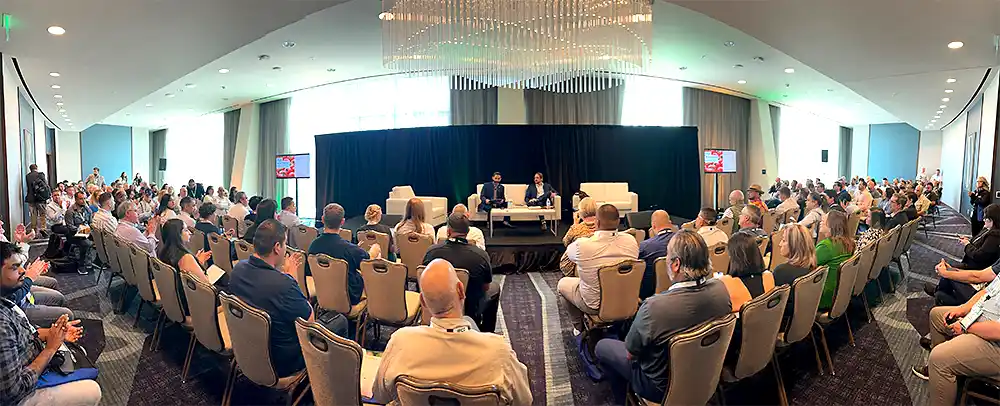HOUSTON — Months of radio silence from the Department of Commerce and International Trade Commission has the produce industry wondering about the fate of the tomato suspension agreement.
The Texas International Produce Association brought in Devin Sikes, an attorney with Akin Gump Strauss Hauer & Feld LLP, who represents tomato growers and importers, to lay out the problem, possible outcomes, and consequences of those outcomes at Viva Fresh on April 12.
The tomato suspension agreement, most recently renegotiated in 2019, stands out among more than 700 antidumping orders in place, Sikes said.
“The tomato suspension agreement is the most heavily monitored,” he said, with quarterly audits, random questionnaires, and annual reviews of sales.
“Since the latest version of the agreement took effect in 2019, Commerce has not found a single violation of the agreement, which is pretty impressive,” Sikes said. “We’ve had a great market, record high prices, record high passage rate of inspections – still over 99 percent passage rate.”
Currently, Commerce and the ITC are considering the Florida Tomato Exchange’s June 2023 request to terminate the agreement. So far, things have been quiet since November.
While there’s no deadline for the request, a 5-year sunset review is looming for the agreement. Elections in both Mexico and the U.S. also could be a contributing factor to the delays.
Sikes laid out three possible outcomes for FTE’s challenge with Commerce:
- Commerce declines to terminate suspension agreement, and it continues as-is;
- Commerce decides some of the terms, such as adjustments to the floor price, of the agreement need to be re-negotiated; or
- the agreement is terminated, which would usher in anti-dumping duties after a 90-day wind-down.
These duties would continue for one year while dumping margins are evaluated based on the top two exporters. That rate would apply to everyone after that first year, Sikes said.
“We would enter a period of tariffs under an anti-dumping order, which would last at least five years,” said Dante Galeazzi, president and CEO of the Texas International Produce Association.
As if the challenge to the agreement wasn’t confusing enough, a sunset review is scheduled to start in August.
The process takes about a year, Sikes said, and is strictly administrative.
If, in the off-chance that Commerce decides to sunset the agreement through this review, tomato imports would go back to a free market. This has never happened.
“Commerce almost always finds that there’s going to be dumping in the absence of an agreement,” Sikes said.
Since the first tomato suspension agreement in 1996, the ITC has historically decided to continue it, with renegotiations.
Sikes said even though the comment period has ended for Commerce’s consideration, it would be a good idea for interested parties to continue to reach out to elected officials.
“There are a number of members of Congress that have been activated and are concerned about this issue,” he said.



